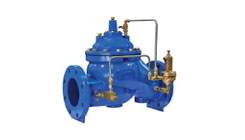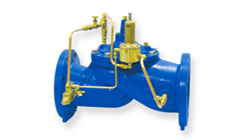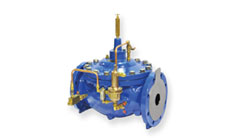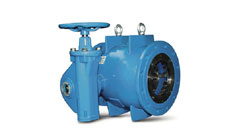Control valves automatically regulate pressure and/or flow rate, and are available for any pressure. If various plant systems operate up to, and a pressure/temperature combinations which require class 300 valves, in places where the design permits, all control valves chose will be class 300 for interchange-ability. However, if none of the systems exceeds the ratings for class 150 vales, this may not be necessary. Globe valves are normally used for control, and their ends are usually flanged for ease of maintenance. Depending on their type of supply, the disc is moved by a hydraulic, pneumatic, electrical or mechanical actuator. The valve modulates flow through movement of a valve plug in relation to the port located inside the valve body. The plug of the valve is attached to a valve stem, which, in turn, is connected to the actuator.
Process plants consist of hundreds or more control loops which all are networked together to produce a product to be offered for sale. Each of these control loops is designed to keep some important process variables like pressure, flow, level, temperature, etc, within a required operating range to ensure the quality of the end product. Each of these loops receives and internally creates disturbances that detrimentally affect the process variable, and interaction from other loops in the network provides disturbances that influence the process variable. To reduce the effect of these load disturbances, sensors and transmitters collect information about the process variable and its relationship to some desired set point. This information is then processed by a controller which decides what must be done to get the process variable back to where it should be after a load disturbance occurs. After all the measurement, comparison, and calculation, some type of final control element must implement the strategy selected by the controller.
The control valve is the most common final control element in the process control industries. These valves manipulate a flowing fluid like gas, steam, water, or chemical compounds, to compensate for the load disturbance and keep the regulated process variable as close as possible to the desired set point. Control valves may be the most important but many times the most neglected part of a control loop.
Dutco Tennant LLC is not just a leading supplier of various industrial and engineering products but we are also complete solution providers for the Middle East and GCC countries. We always keep our customers ahead of everything and always try our best to provide them with world-class solutions to fulfill their needs.

Pressure Reducing Control Valve

Pressure Sustaining Control Valve

Pressure Relief Control Valve

Flow Control valve

Needle Control Valve